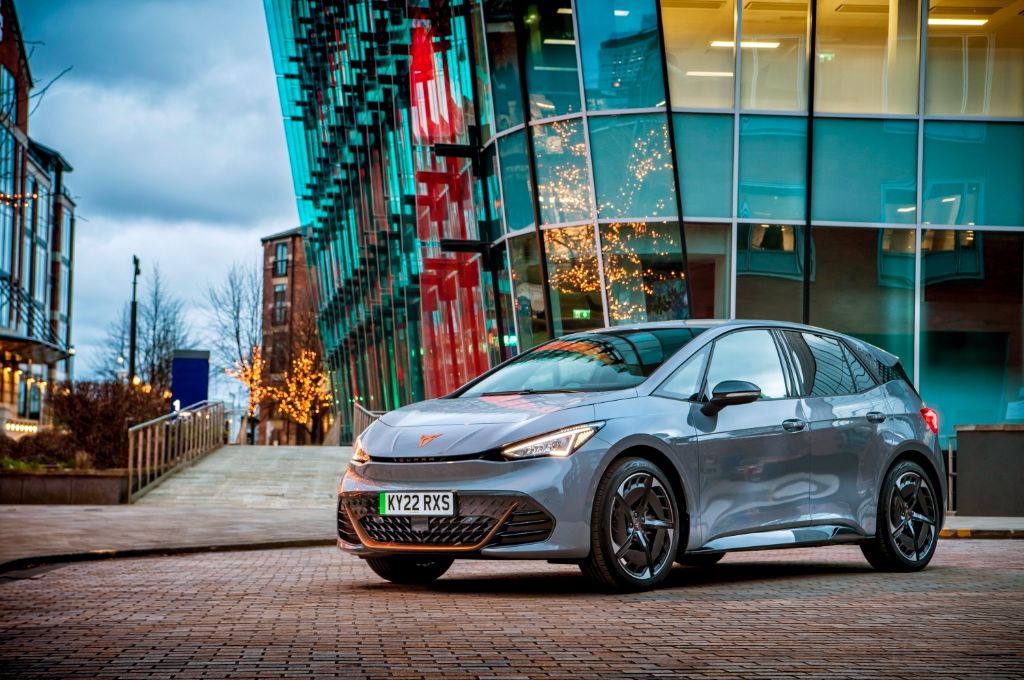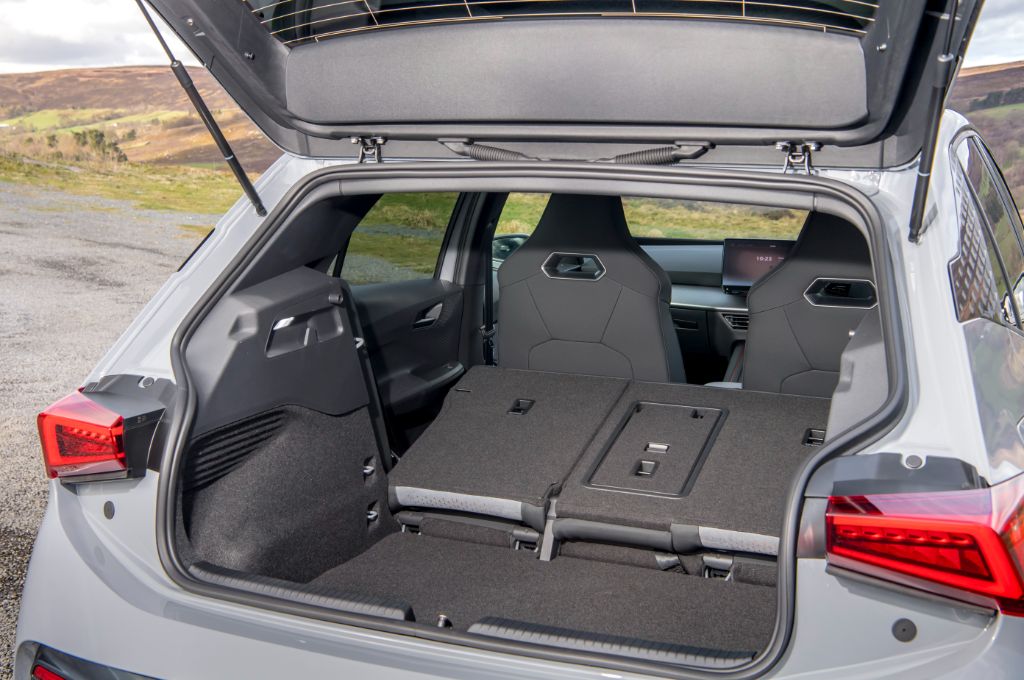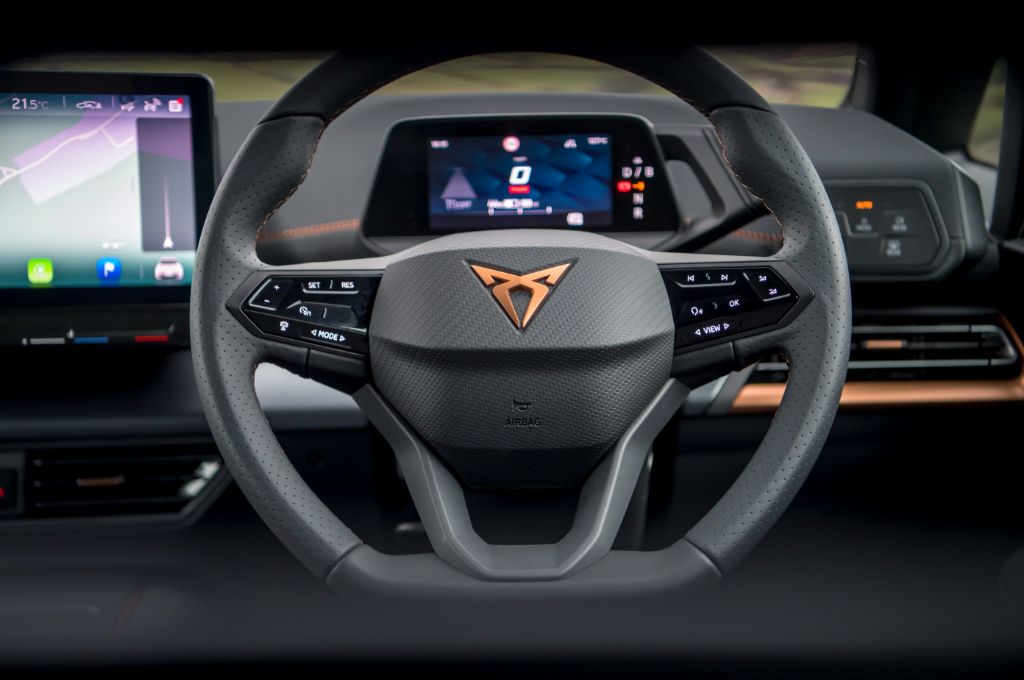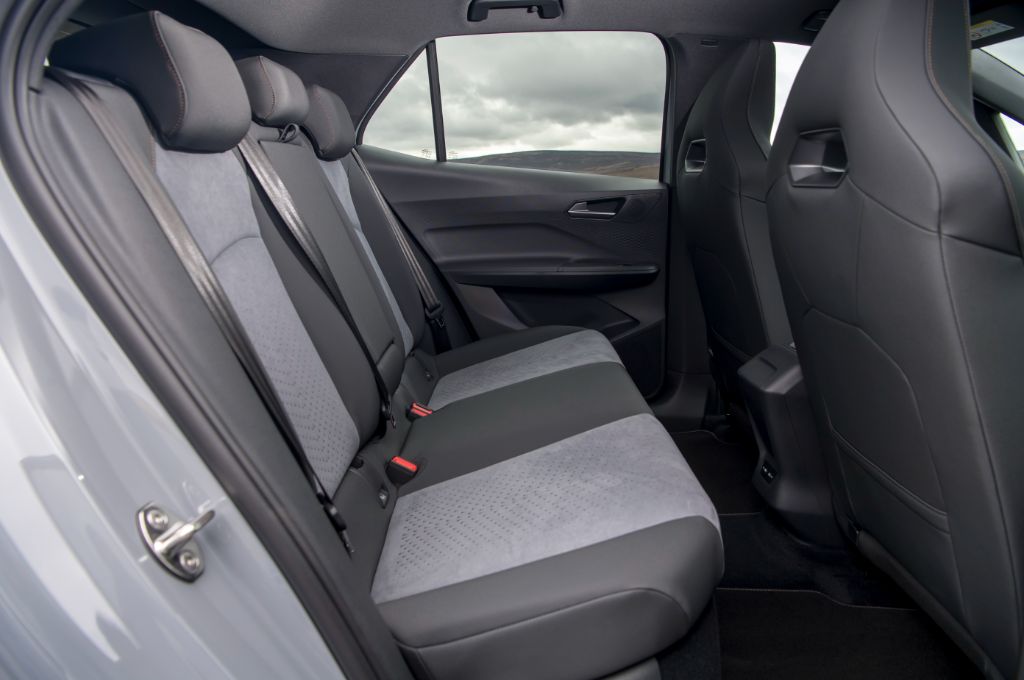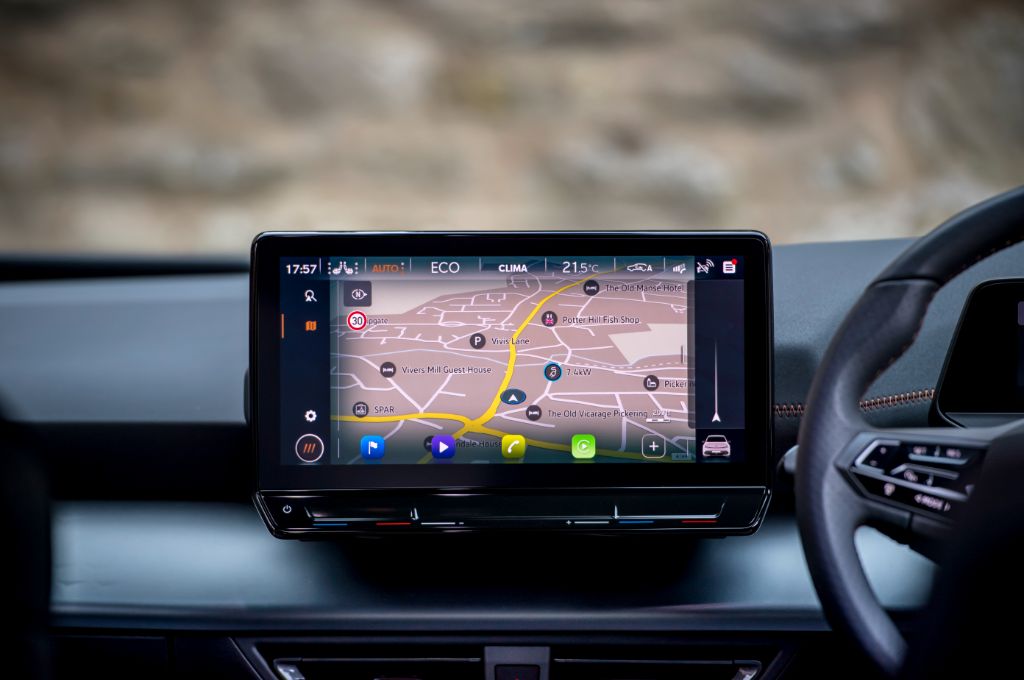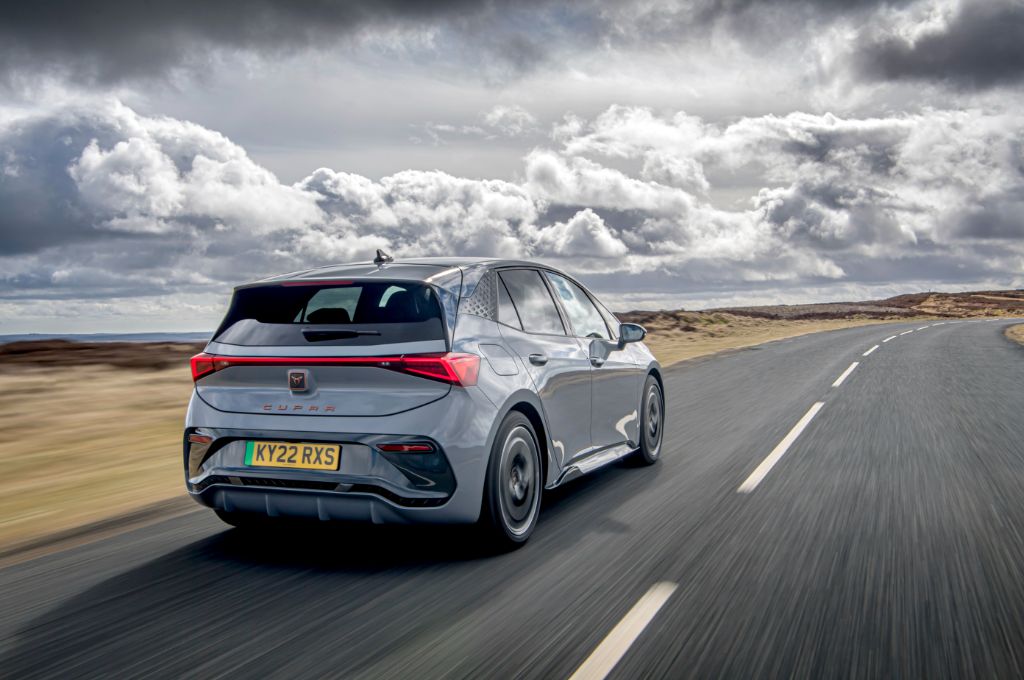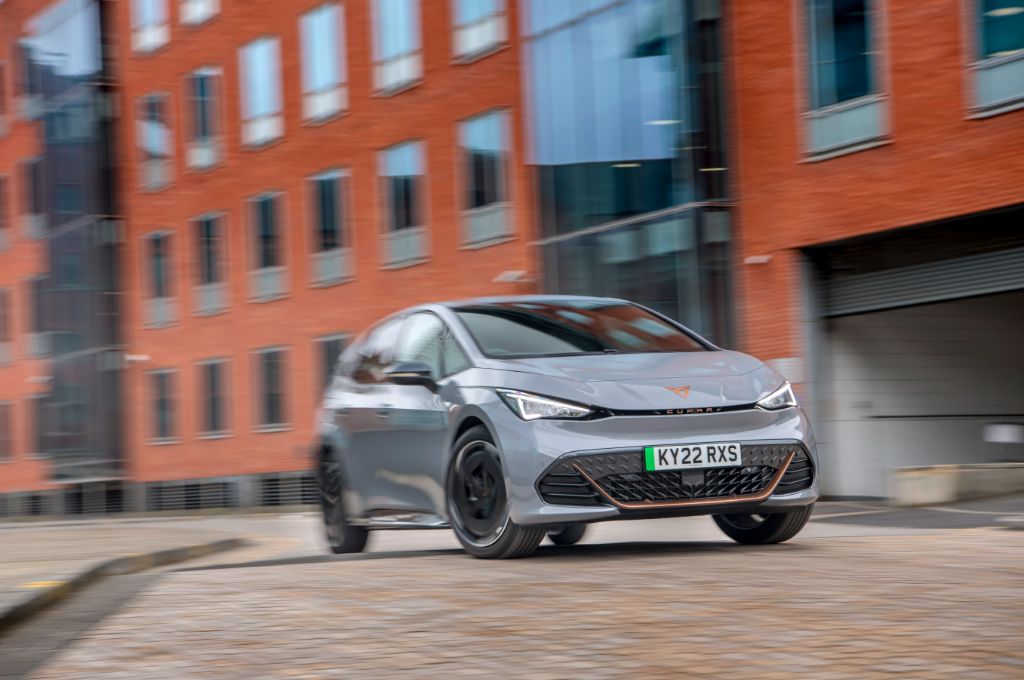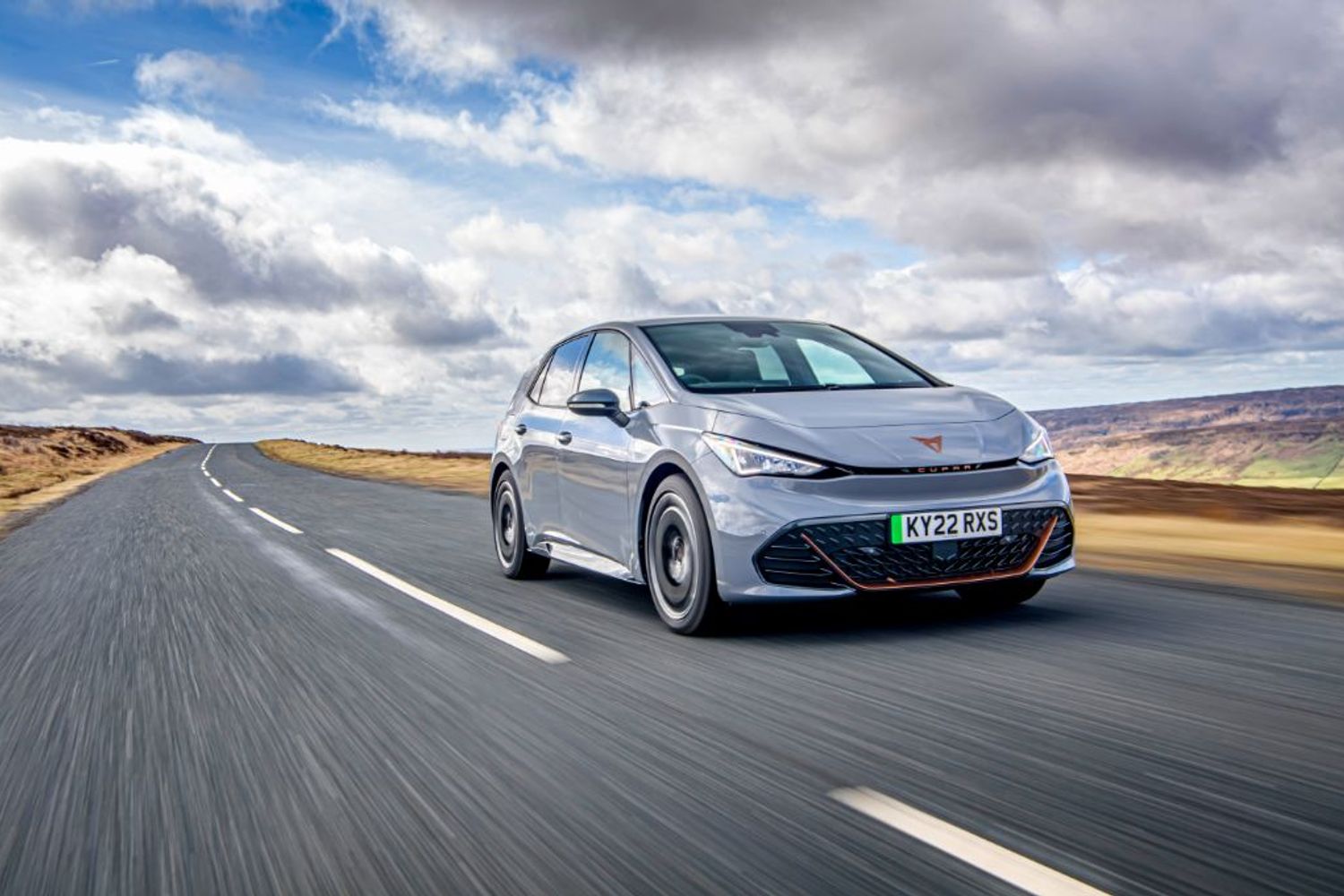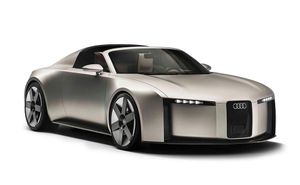Range
The bigger 77kWh battery in the Born offers a WLTP range of up to 342 miles depending on the spec that you go for; be careful with your choice of wheel size, in particular, if you want to maximise range, as that has a big impact on the distance you'll be able to drive in between charges. The smaller battery manages between 259- and 264 miles of WLTP range, which makes the Born very competitive with rivals like the VW ID.3, MG4 and Hyundai Kona Electric, although a Kia EV3 and Tesla Model 3 will go further.
As for real-world range, we'd expect to see around 250- to 310 miles in the long range Born (and much the same in the VZ), or more like 220- to 260 in the more popular 58kWh model.
A heat pump is a £970 option across the entire Cupra Born range, but we'd only suggest that it's worth the investment if you do a fair amount of mileage in the winter. Otherwise, the improved efficiency that it brings won't be enough to pay off the cost of adding it, although it's likely to improve resale or part-ex values - so factor that in, if it's a concern.
Battery
You've got the option of a 58- or 77kWh battery in the Born, and that's the usable capacity rather than the total (which is 62 and 82 kWh respectively). So you'll be charging and discharging 58- or 77kWh of cells; that small percentage of 'zombie' cells that make up the total capacity remain dormant, and are just there to improve battery life of the battery packs.
Speaking of which, you get an eight-year, 100,000 mile warranty on the battery in the Cupra - much the same as on most rivals.
If you're considering a used Born, or are concerned about battery longevity in the longer term, it's useful to consider that a typical lithium-ion NMC battery like those in the Cupra will lose roughly 1.8% of battery's range performance each year. That varies a lot - it'll be more if the car's rapid charged all the time, or lives in a very hot or very cold climate - but in the UK's moderate climate, it's reasonable to assume roughly this rate of battery degradation.
The Born uses lithium-ion NMC batteries across the whole range, and you can read all about the pros and cons of this type of battery in the Electrifying guide.
Charging
The Born will charge at up to 11kW from an AC charger but most owners in the UK will do their routine charging at a 7kW home charger, as this is the fastest charging that most British homes can support. A 7kW charger will do a full charge in around 9- to 12 hours.
The 58kWh Born gets a peak DC rapid charging rate of 120kW, which is good for an 80% charge in 32 minutes, while the big battery model will suck electricity up a touch quicker, at 170kW, for an 80% top-up in 30 minutes despite the bigger battery. The VZ manages 170kW, which is pretty quick and will manage a 10-80% charge in around 25 minutes in ideal condition and at a fast enough rapid charging station.











